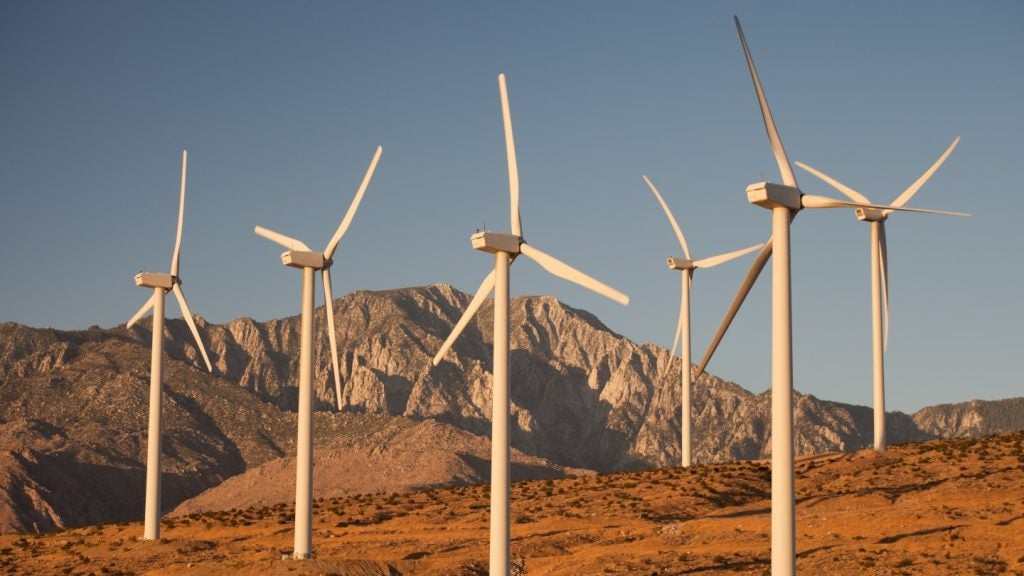

"As renewables start to become really, really cost effective, so things like solar reaching grid parity, distribution companies are asking themselves, well what am I gonna be in 10 years, what service am I actually gonna provide? Once I get all the demand response I can, what’s my business?" muses Ventyx utilities expert Clinton Davis, as he discusses what the future holds for the traditional energy suppliers.
"I think that will be the next question. Do I just connect different people with supply and demand at a distributed level or do I just end up becoming a coordinator like Amazon?"
Davis, who has a master’s degree in Environmental and Energy Systems Analysis from John Hopkins University, believes that as renewable energy starts to play a stronger role and increase self-generation, the traditional model for utilities may no longer suffice. His view is shared, at least in part, by the head of one of America’s largest independent energy producers.
"If you ask me who I worry about beating us, I give very little thought to the traditional power companies. One of the changes we’re talking about when you’re talking about balancing everyone’s power systems in their house is that it basically becomes an information technology-based industry," said David Crane, president and CEO at NRG, in an interview with The Atlantic.
See Also:
Before the rise of renewable energy sources, particularly solar panels, the traditional utilities that Crane referenced had very little cause for concern. They owned the infrastructure that generates and distributes the energy and were free to carve up sizeable regions among a small number of companies with sufficient scale and resources to maintain and manage supplies for millions of households. For the UK, that has created an energy market where six companies share out 95% and a large number of smaller companies compete over the remaining 5%.
How well do you really know your competitors?
Access the most comprehensive Company Profiles on the market, powered by GlobalData. Save hours of research. Gain competitive edge.

Thank you!
Your download email will arrive shortly
Not ready to buy yet? Download a free sample
We are confident about the unique quality of our Company Profiles. However, we want you to make the most beneficial decision for your business, so we offer a free sample that you can download by submitting the below form
By GlobalDataBig Six called to order
A roundtable discussion organised by BT at the launch of its report on customer service and utilities sheds light.
As individual entities, the companies controlling an overwhelming majority of the UK energy market are British Gas, Npower, Scottish Power, E.On, SSE and EDF. But as an industrial grouping that forms a united front against change and political interference and works to preserve the status quo of rising prices, they are simply the ‘Big Six’.
When parliament, driven by a swelling of public anger over the fact that the average household bill had increased by around 10%, decided to hold a public inquest into the utilities industry, representatives from each one was called in to give evidence. As expected, they acted with musketeer like solidarity, putting up a united defence as the various MPs picked holes in their uniform strategies and pricing. To the public, and its inquisitors, the price rise was a clear profit making move, but to the industry it was driven by green levies, regulatory fees and a rise in the wholesale cost of electricity and gas.
Had the witness pool consisted of just six, the hearing would have remained a standoff. But sitting alongside the industrial power houses, was Stephen Fitzpatrick, founder and chief executive of the much smaller energy company Ovo Energy. Asked for his view, he told MPs: "I can’t explain any of these rises, other than they are not the prices we see in the liquid wholesale market."
His act of industrial badmouthing did nothing to endear him to the established order in UK utilities, but the 20,000 new customers that switched over to OVO in the following two months no doubt eased his pain. More importantly, his intervention cast OVO as the friendly face of utilities.
A little bit of love enters the energy market
In the months since the hearing, the Bristol based start-up has made the most of its time in the spotlight. Through the award winning #feellovedagain PR campaign, it wooed new customers from twitter – pouncing on tweets from people voicing dissatisfaction with their existing supplier – and twisted the knife into its competitors on YouTube – its channel features a series of short comedy that parodies traditional energy executives in a humorous and unflattering light.
In a further affront to the established way of doing things, it has built a personable customer service process. Operators are encouraged to add a personal touch and customers are given the option to change the hold music if it is not to their taste, which starkly contrasts the monotonous and lifeless process that if not fair, is certainly assumed of older utilities.
Having recently doubled in size in a period of just three months, the company now has revenues of £450 million and just over 300,000, Ovo has fed off the widespread public anger towards the dominance and ever escalating prices of the ‘big six’. It has drawn further strength by embracing emerging opportunities like installing smart grids in users homes, which the large players are also doing, and fully embraced the government’s efforts to push community energy projects.
Through Ovo Communities, the company will act as co-ordinator and technology partner to community groups that want to establish their own energy buying group. The plan was singled for praise by the government, with Energy Secretary Ed Davey, saying, "Ovo Communities is the type of new business model we need."
That Ovo is only just over five years old, offers it the agility to embrace innovation and pursue new business models. While its energy supply business has reached a share of more than 1% of the UK market, it is unlikely to rival the likes of the Big 6 in the traditional market, not least because it has stated its opposition to it.
But with smart grid installations continuing to increase, the UK plans to have one installed in every house by 2020, and the era of the prosumer, householders who both consume and produce grid energy, starting to emerge, the traditional business model may not be so attractive, which opens the door for much larger predators. "Of the big four companies that will inherit the Earth — Facebook, Google, Apple, and Amazon — the one that has shown the most interest in this space is Google," said Crane.
Google starts to chart a new energy future
Schemes such as real-time pricing represent a complex new frontier that brings risk as well as reward.
Google’s involvement in the energy market started back in 2009 with the launch of a philanthropic software project called Google PowerMeter. The idea behind the project was to enable consumers to track their energy usage and identify ways to increase efficiency. In 2010, the device was piloted in San Diego, but by 2011 the entire project had been canned. It returned at the start of this year, when it announced that it had acquired smart device company Nest for $3.2 billion.
With an existing product portfolio of smart thermostats and smoke alarms, the deal expanded Googles data collection to cover home energy use. Last week, Nest confirmed that it would share ‘limited’ amounts of data collected through its devices with its parent, and also a selection of other companies including Mercedez.
When the data sharing was announced, the company confirmed that it would enable Google to identify whether or not people were at home, but the full extent of what companies might be able to do with the data is as yet unclear. It is strongly expected that as more and more appliances become Wi-Fi enabled and fitted with sensors, they will interact with smart thermostats like Nest to enable users to control their energy usage remotely, through phone and tablet apps.
As the level of data becomes more sophisticated, commercial entities with access to the data will be able to build a detailed profile of consumer’s energy use and routines.
Stockholm based start-up Watty, is in the process of developing a smart box that is attached to an energy metre and enables users to identify exactly how much energy is being consumed by individual appliances. The app will also enable comparison between existing appliances and alternatives in the market. Such technology opens up the route to present more energy efficient appliances as money saving investments.
Data to dictate distribution
To explain how the data might be used, Davis draws on a recent social media experiment he carried out at home: "I bought a rescue dog and I turned off all the settings of my social media as an experiment and turned it on to where it was as lax as possible, so anyone could see updates on all that stuff and market to me."
"After about a week or so, I started getting ads from all sorts of websites saying, ‘here’s dog training classes in Sacramento’ where I live, and they started sending me all these personal things which are obviously an accumulation of all these sorts of things that I was posting."
Turning to utilities, he says: "If you think about customers, segmentation is not something we have done extremely well in utilities and I think one of the trends that is going to happen is that they’re going to start sending customers the ‘you need dog training’, well not necessarily ‘you need dog training’, but they’ll understand the customer a lot better and it will be a necessity if they want to do things like offer distributed energy products and integrate those things better."
While the shift to technology opens up opportunities, it also poses a significant challenge: "I think in general, cyber security and data privacy are some of the things that will get more and more exposure," says Davis. With incidents such as the Edward Snowden leaks, which revealed mass data surveillance by the US National Security Agency, public concern over data privacy is high. Davis believes that the main issue threatening the growth of a data-driven utilities model is resolving just who owns the data. "Is it the customer, the utilities, or the retailer?" he asks.
While the resolution to that question is unclear, the so-called ‘internet of things’, where everyday items are connected and interact through sensors, is starting to make itself at home. As its role increases, the established utilities will see their competitive advantage eroded and will face direct competition from those that already play a key role in everyday living, from the tech companies like Google, Apple and Facebook, to the broadband and cable tv companies, US cable providers have already entered the energy supply market.
Quite how the energy market will look in 20 years time is as yet unknown, but big changes lie ahead.


.gif)




